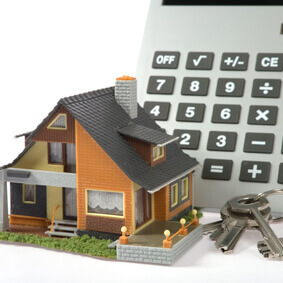Real Estate Investing For Millennials

Why Millenials Should Start Investing in Real Estate Now
As a millennial, you haven ‘t even considered investing in real estate- hell, you haven’t even bought your first house! You’re in your mid- to late-20s, you’re earning well, you’re working hard, you’re playing hard, and you have years before you need to worry about settling down. And retirement? You’ve got another 50 years to work before thinking about that. Wait, what? That can’t be right, can it?
It is. Assuming you work hard and save your money and assuming Social Security survives, that is about the right timeline.
Worse, you can’t be sure you’ll have enough money to enjoy the lifestyle you’re working hard to become accustomed to. Current wisdom holds that to ensure having plenty of money in your golden years, you must:
- Take aggressive advantage of your employer’s retirement planning benefit
- Save, save, save and invest the proceeds in IRAs, ROTHS, 401Ks, annuities, etc.
- Hope your earning power increases
- Wait longer until you retire
In the mean time, you are budget conscious and thrifty with your wages, making every dollar count so that you can reap the rewards in later years. Sure, your money is working for your future, but you have less of the ready now.
How to speed things up
The ideal solution would be to minimize your living expenses and add to your monthly income by investing in real estate, a tangible asset whose value appreciates over time. The best real estate investment is in rental property, specifically a single- or small multi-family home. Rental income can add from $200 to $1,000 per month to your cash flow.
Not only does the property value appreciate and contribute to your cash flow, you also build equity that you can use to leverage additional investment in the real estate market. A rental property offers tax advantages—depreciation and tax-deductible expenses. It also provides a hedge against inflation with fixed mortgage costs and increasing rental rates.
How it works
Do your homework; locate a residential property that has been on the market for more than 100 days. The price should also have come down about 10 percent or $100,000 from the original asking price. Also, look for an asking price that is below market value. A property that meets these criteria is probably not a pristine model home; it will be an older home but not a complete dump. Look at foreclosures, short sales and fixer-uppers; you want a motivated seller.
Dependent on your mortgage, you’ll need from as low as 3.5 percent down up to the standard 20 percent. A higher interest rate can translate to a lower down payment. Low-down mortgages are available from VA, USDA Rural Development, FHA and private mortgage insurance lenders. Consider borrowing from your retirement account or family to raise the total down payment amount. The more you can put down, the lower your monthly payment will be.
If you plan to rent some or all of the property out, check the lender’s rules about early repayment, resident ownership and use as a rental property. Some lenders have more stringent restrictions and requirements for rental properties. You can rent out a bedroom in your single family home to generate extra income. If you buy a duplex, you can live in one unit and rent out the other unit for most, if not all of your mortgage payment.
There are costs
You’ll also need to calculate any repair, maintenance or upgrade costs, taxes, insurance and homeowner association fees, if applicable. Get advice from a reputable Realtor and be sure to understand any inspection reports you receive. Homeownership has costs that are not always apparent. Due diligence will minimize the risks.
Bottom line
You can work your tail off and begin saving aggressively for retirement decades later. Or, better yet, you can make a carefully considered real estate investments and end up on the fast track to a comfortable retirement. In all likelihood, your retirement will be years ahead of your peers.